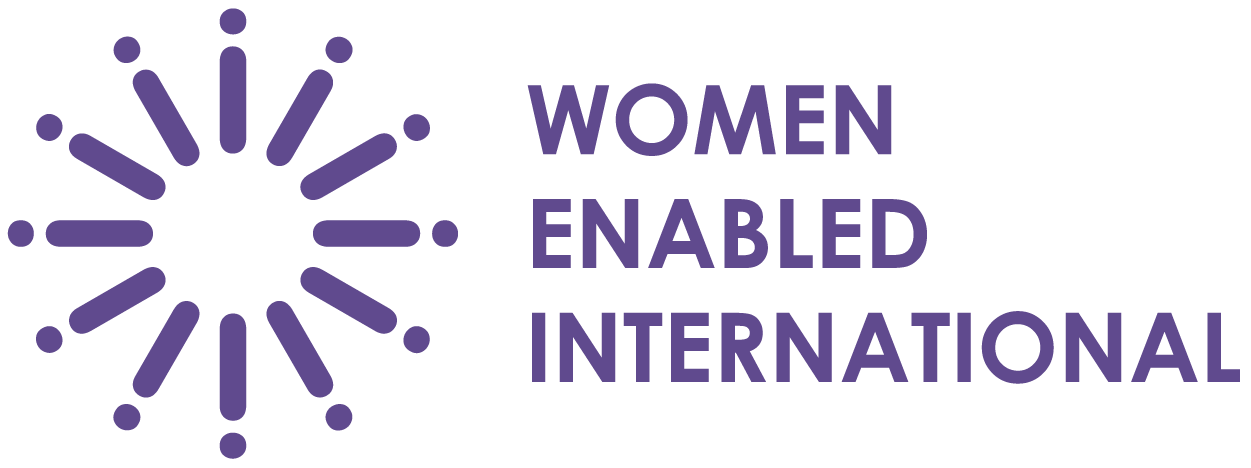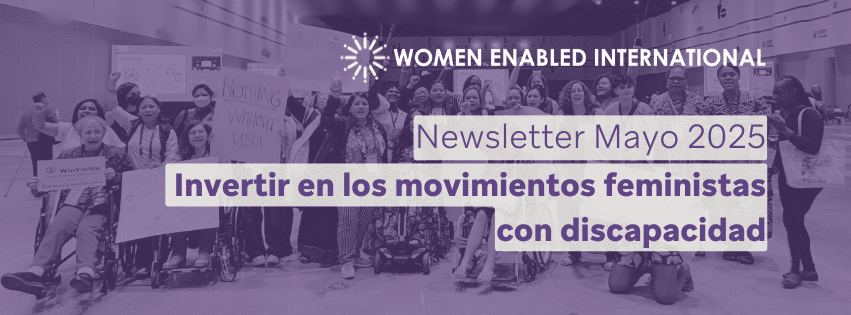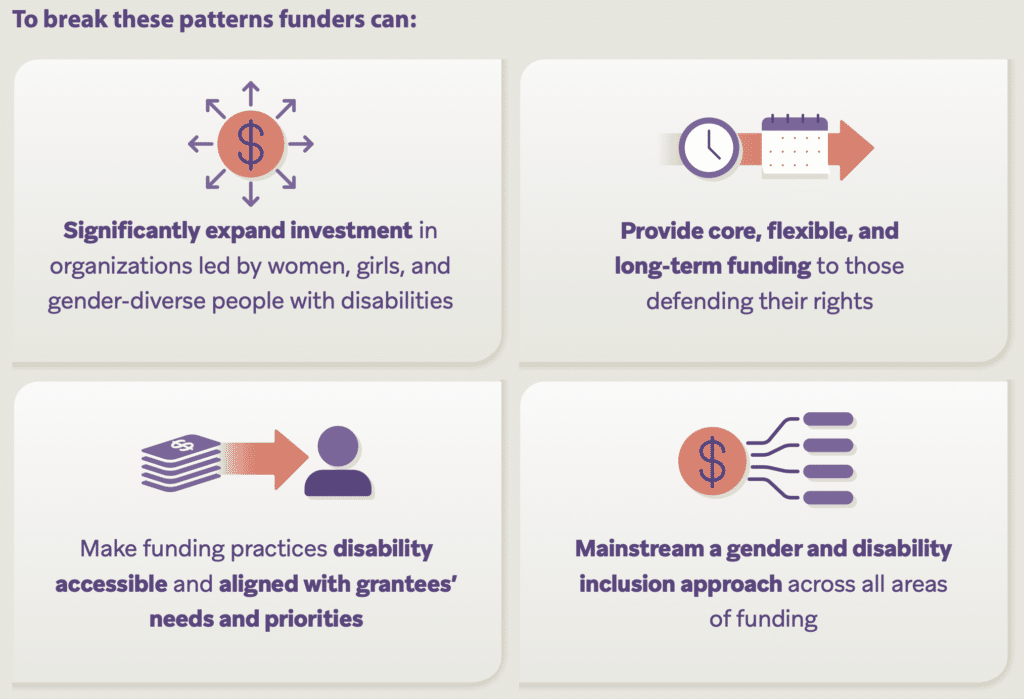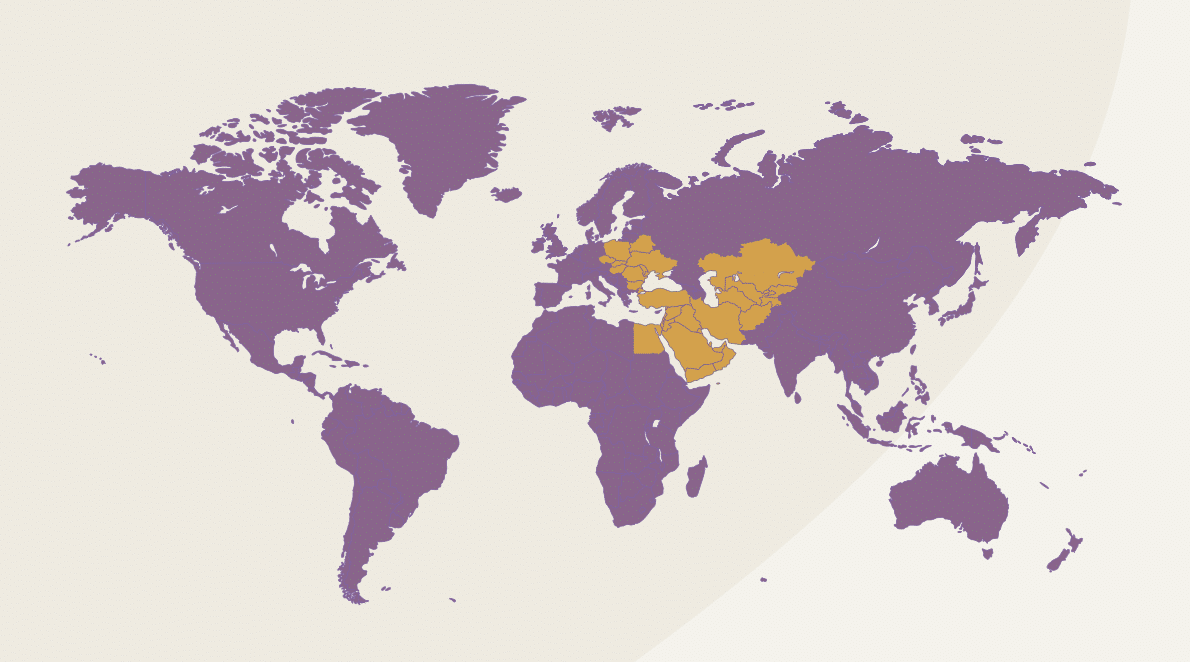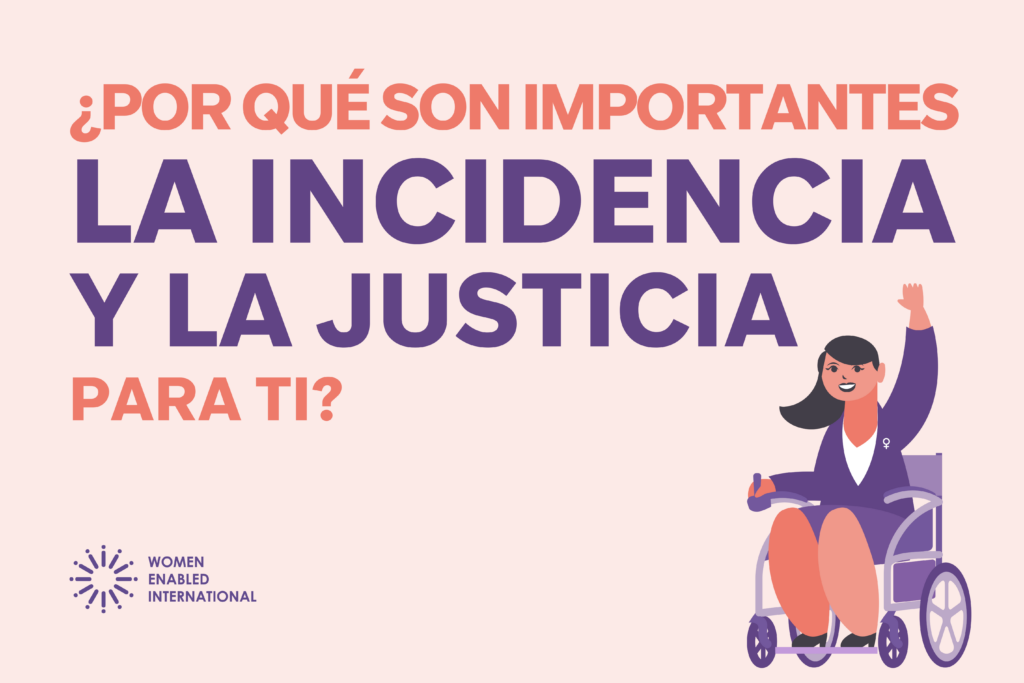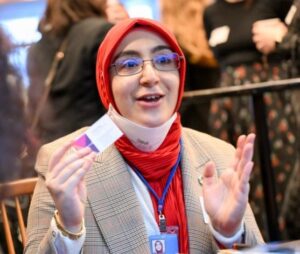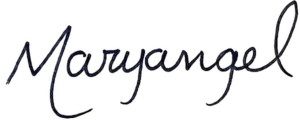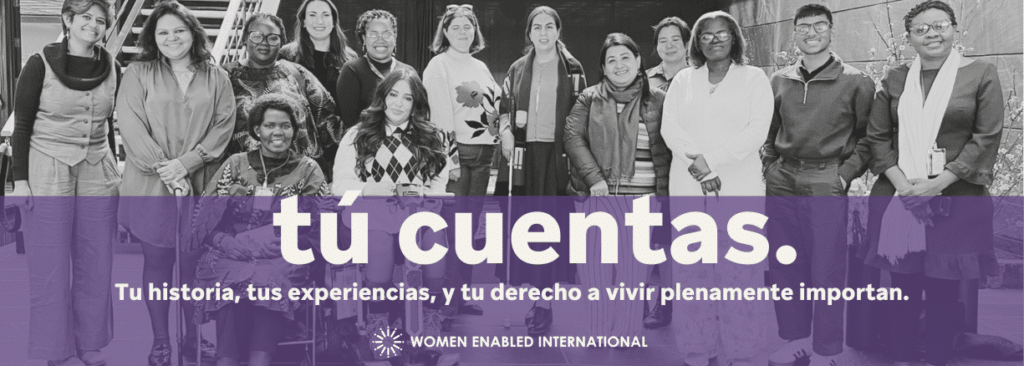
Querida comunidad,
Tú cuentas.
¡Tu historia, tus experiencias y tu derecho a vivir plenamente importan!
Como feministas con discapacidad y aliades, en Women Enabled International estamos obligades a hacer oír nuestra voz y a defendernos unes a otres. Actualmente, los movimientos antiderechos están poniendo en marcha iniciativas para silenciarnos y hacer retroceder nuestros derechos como mujeres y personas de la diversidad sexogenérica, y para desechar y borrar nuestra existencia como personas con discapacidad.
Nuestra misión es clara, y ante estas amenazas, en WEI estamos redoblando esfuerzos para garantizar que nuestra comunidad sea tomada en cuenta, considerada e incluida en la toma de decisiones que afectan nuestra salud, oportunidades, familias y libertades.
¡Ayúdanos hoy! Considera hacer una donación para apoyar nuestro trabajo.
Una quinta parte de todas las mujeres—500 millones de personas en todo el mundo—, siguen sin ser tomadas en cuenta y están ausentes en los espacios donde se toman decisiones políticas. Aún así, sabemos que cada una de las personas que vivimos en la intersección del género y la discapacidad somos intrínsecamente poderosas, y nuestra fuerza en número puede lograr una igualdad transformadora si trabajamos juntes.
Los temas que nos competen no son abstractos ni teóricos. Atraviesan nuestras mentes y nuestros cuerpos; sentimos profundamente las injusticias y las vivimos de primera mano. En WEI nos comprometemos a documentar la magnitud de los abusos contra los derechos humanos a los que se enfrenta nuestra comunidad y a movilizarnos con respuestas acordes. En el mundo de hoy, nuestra labor nunca había sido tan necesaria.
Las cifras son desoladoras:
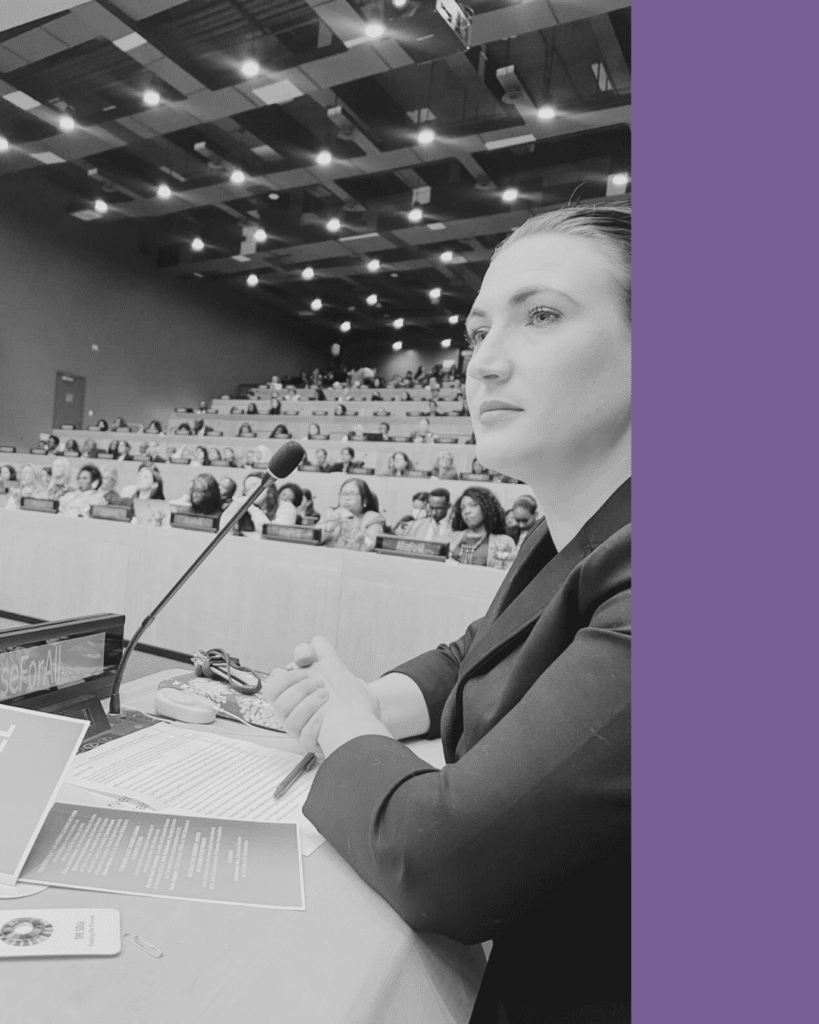
- Las mujeres y niñas con discapacidad tienen 10 veces más probabilidades de sufrir violencia sexual.
- Entre el 40 y el 68% de las mujeres y niñas con discapacidad sufrirán violencia sexual antes de los 18 años.
- Las mujeres y niñas con discapacidad tienen 3 veces más probabilidades de sufrir violencia de género (física, sexual, emocional, económica) que las personas sin discapacidad.
Sin embargo, la financiación de nuestros movimientos nunca ha estado a la altura de nuestras necesidades ni de nuestro potencial. De hecho, el soporte financiero que reciben les defensores de los derechos humanos en la intersección del género y la discapacidad, es desproporcionadamente menor al que reciben otros movimientos. Este patrón ha ido en aumento en los últimos años.
- Las mujeres con discapacidad reciben sólo el 4% de las subvenciones de fundaciones privadas para los derechos de la mujer.
- Menos del 5% de la financiación de las fundaciones privadas se destina a promover los derechos de las personas con discapacidad.
Defender los derechos de las personas con discapacidad y de género es más importante que nunca dado el creciente autoritarismo, el aumento de las violaciones de los derechos humanos, y los retrocesos en avances hacia la igualdad de género.
La discapacidad y el género no son una cuestión de nicho. En WEI nos aseguramos que los derechos de nuestra comunidad sean prioridad y no se hagan a un lado, y para lograrlo concentramos nuestros esfuerzos en fortalecer y centrar los liderazgos de las feministas con discapacidad a nivel nacional, regional y mundial; diseñando investigaciones pioneras y conectando con movimientos clave—como la defensa de la democracia, la liberación colectiva, la justicia climática y la justicia racial, por nombrar algunos.
Tu activismo y tu compromiso con la misión de WEI son una gran parte de nuestro impacto colectivo. Cada dólar que contribuyas, cuenta.
Gracias,

Maryangel Garcia-Ramos Guadiana
Directora Ejecutiva
